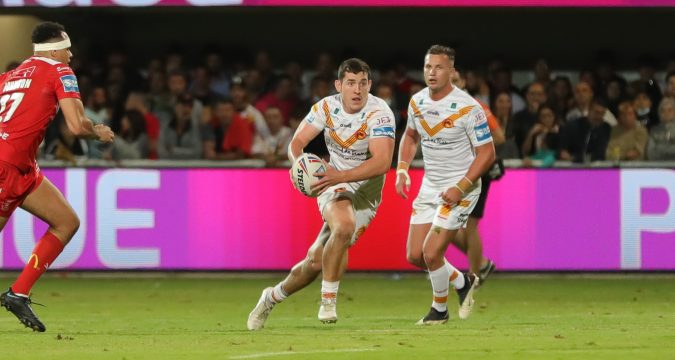 MARTYN SADLER reflects on a remarkable night in Perpignan
After the opening weekend of the Super League play-offs produced two disappointing attendances at Wigan and Warrington, it was surely a pleasure for anyone to witness the excitement and atmosphere of a sell-out crowd in Perpignan, as the Dragons' supporters noisily welcomed the
MARTYN SADLER reflects on a remarkable night in Perpignan
After the opening weekend of the Super League play-offs produced two disappointing attendances at Wigan and Warrington, it was surely a pleasure for anyone to witness the excitement and atmosphere of a sell-out crowd in Perpignan, as the Dragons' supporters noisily welcomed the Historic transitions
 MARTYN SADLER reflects on a remarkable night in Perpignan
After the opening weekend of the Super League play-offs produced two disappointing attendances at Wigan and Warrington, it was surely a pleasure for anyone to witness the excitement and atmosphere of a sell-out crowd in Perpignan, as the Dragons' supporters noisily welcomed the
MARTYN SADLER reflects on a remarkable night in Perpignan
After the opening weekend of the Super League play-offs produced two disappointing attendances at Wigan and Warrington, it was surely a pleasure for anyone to witness the excitement and atmosphere of a sell-out crowd in Perpignan, as the Dragons' supporters noisily welcomed the 